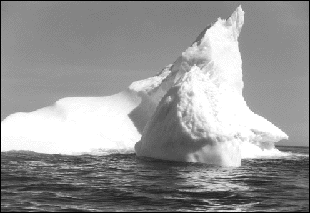|
|
|
監督:アンヌ=クレール・ポワリエ
Director : Anne-Claire Poirier |
1932年、カナダのケベック州生まれ。モントリオール大学、モントリオール舞台芸術学院を卒業後、カナダのテレビ局に台本作家兼インタビュアーとして務める。1960年カナダ国立映画製作庁(NFB)に入り、編集や演出の助手をし、1964年には第1作目の劇映画『La fin des 師市 』を監督。その後ケベック初の女性監督による長編記録映画『De m屍e en fille 』(1967)を発表。これは「女性主義の映画」の先駆けとなり、以後もテレビの「 As Woman 」シリーズの企画など、常に女性の日常を映像で捉え、女性監督の活発な活動を押し進めた。1975年から1978年までNFBのエグゼクティブ・プロデューサーに任命され、同時に同庁フランス語映画製作所長を兼任。1979年に発表した『声なき叫び』はレイプを女性の側から見つめ告発した作品として各国で大きな反響を受けた。 Born in Quebec in 1932. After Graduating from the Montreal School of Theatre, Poirier worked as both a scenario writer and interviewer for the francophone division of the Canadian Broadcasting Corporation. In 1960 she became an assistant director and editor for the National Film Board of Canada. Directed her first film, La fin des 師市 in 1964 and became the first woman director in Quebec of a long film with the documentary De m? re en fille in 1967. Known as a forerunner of feminist cinema, she set up the television series As Woman devoted to giving woman directors a forum to explore the everyday life of woman. Appointed as both executive producer and director of francophone production at the National Film Board of Canada from1975 to 1978. In 1979 directed Mourir ? tue-t腎e a passionate denunciation of rape which has been acclaimed around the world. |
 |
|
|
ポワリエ監督はヘロイン中毒の若者たち、時にはその両親と会い対話を重ね、あるいは娘を殺した男の裁判に出廷し、出ようのない答えを探し、体験しようのない娘の“生”を求め、喪失を体験してゆく。 モノクロの映像を繋いでゆく監督自身の情緒を排したナレーションは、生き続けざるを得ない残された者の“今生きている”ことのあやうさが、澱のように静かに積もってゆくのを聞いているようだ。攻撃のない画面から伝わってくるのは、深い慟哭を秘めた鎮魂歌であり、自身への癒しであろう。 なおポワリエ監督は、1982年に日本でも女性グループにより全国的に上映された、強姦をテーマにした作品『声なき叫び』を始め、カナダのフランス語圏であるケベック州のカナダ国立映画庁(NFB)をベースに、長年フェミニストとして、創作活動をしてきた。本作品はNFB退職直前に、ほとんど協力者の支援を求めずにつくられたものである。 |
Through conversations with young heroin drug addicts and their
parents and the court appearance of the man who murdered her daughter,
Poirier searches for the life of her daughter who herself can
no longer experience life. Exploring her loss she searches for
answers with no resolution. The director's emotionless narration
that connects monochrome images together seems to be listening
to a silently settling sediment, to the peril of those left behind
who have no other choice but to go on and affirm their own lives.
The uncensored screen reveals a deep mourning hidden in the requiem
and perhaps suggests a form of self healing. In 1982 Poirier's
film about rape A Scream from Silence, was shown across Japan by women's groups. A longtime feminist,
Poirier has produced many works backed by the National Film Board
of Canada in the francophone province of Quebec. This film was
made right before her retirement from the NFB, and almost entirely
on her own. - Nakano Rie |
|
|
|
|
監督のことば 1982年10月18日、26歳の若い女性が死んだ―殺害された。彼女はヘロイン中毒だった、 彼女は美しかった。 彼女は私の娘だった。 私は喪に入った。私は夜に生きながら明瞭に見ようと試みた。 私は内からの光を探した、和解の光を。 私は娘の軌跡をたどり、彼女をまるごと知ろうとした、彼女をまるごと愛するために。 私は見知らぬ世界に踏み入った。私は法の彼岸に踏み入った。私は中毒患者たちに、美しく歳若き犠牲者たちに会った。 私は不幸な両親たちと、罪と無能の悔恨を分かち合った。 私は痛みを追い払おうとした。私はそこに意味など失われてしまったかと思えるものに、意味を見い出そうとした―愛に意味を、喪失に意味を、人生と、それが限りあるものであることに意味を。 『LET ME GO あなたは叫んだ』は私の探究の末に生まれたものだ。私には答えはない。私は自分の中に棲みつき、私たちすべてが関心のある質問を問いかけようと試みた。 私は麻薬中毒を覆った偽善の沈黙を打ち壊そうとした。 『LET ME GO あなたは叫んだ』はあまりにも度々犠牲者が罪人とされてしまう世界に、あなたをいざなう。 あなたに私の探索を、分かち合っていただきたい。 |
Director's Statement October 18th 1992, a young woman of 26 died--murdered. She was a heroin addict, she was beautiful. She was my daughter. I entered into mourning. I lived in the night, hoping to see clearly. I looked for the inner light, that of reconciliation. I walked in the footsteps of my daughter in order that I might know her entirely, love her entirely. I entered a world unknown. I entered the margins of existence. I met with drug addicts, the young and beautiful victims of a massacre. I shared in the culpability and helplessness of saddened parents. I've tried to chase away the bad. I've looked for meaning, a sense, that I thought no longer existed, a sense of love and of loss, a sense of life and of its finality. LET ME GO is an extension of my research. I have no responses; I've attempted to pose the questions which live within me, and which concern us all. I wanted to break the hypocritical silence that surrounds drug addiction. LET ME GO invites you to enter a world where the victims too often become the culprits. I invite you to share in my quest. |
